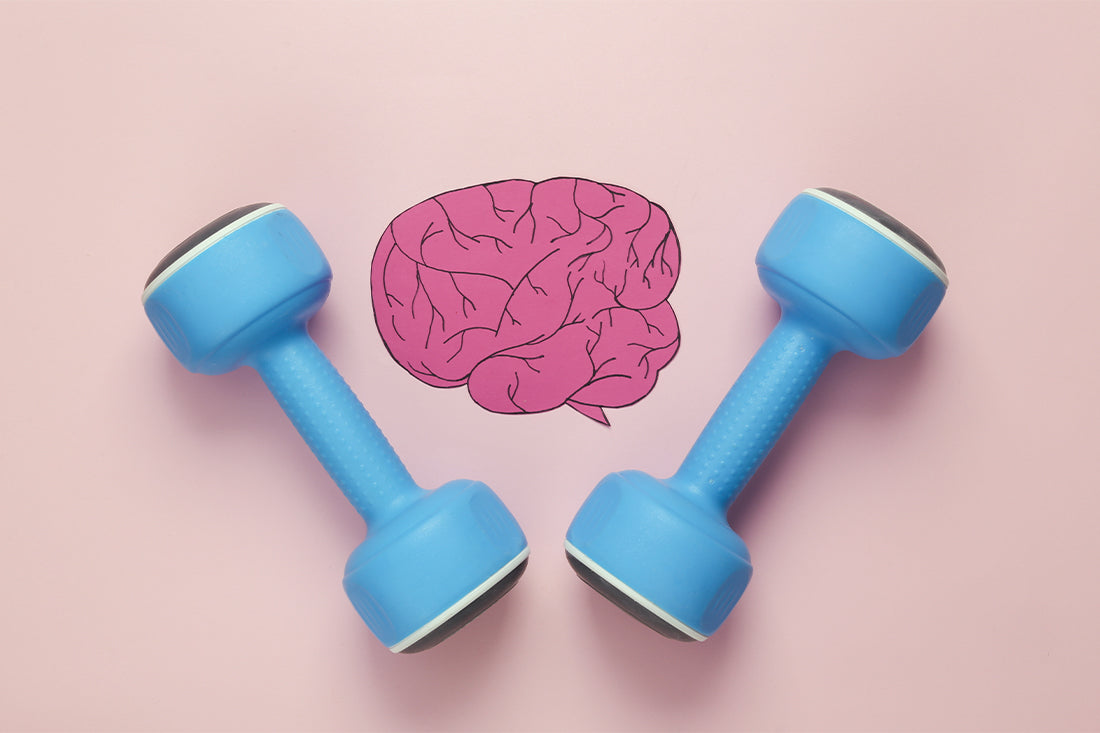Just like our bodies need movement to stay healthy, our brains also benefit from regular activity. As we grow older, it becomes even more important to stay mentally and physically active. Many people notice changes in memory or focus over time, and while that's natural, there are simple ways to help maintain your brain’s sharpness and clarity.
Adding brain exercises to your daily routine doesn’t need to be complicated or time-consuming. With a few enjoyable and mindful habits, you can help your brain stay healthy, support better memory, and stay mentally present in your day-to-day life. Whether you’re a young adult or an older adult, it’s never too late—or too early—to care for your cognitive health.
Why Brain Exercises Matter
Our brain, like any muscle, responds well to regular use. Engaging in brain exercises helps support memory, focus, and learning new skills. These exercises don’t need to be hard—they just need to challenge your thinking in a fun and interesting way.
Doing these activities consistently can help ease stress and anxiety, support mental health, and give your mind something new to enjoy. Pairing them with physical movement and social interaction can make a noticeable difference in your day.
- Add Brain Games to Your Routine
Playing games that make you think can help your brain stay alert and flexible. Here are some examples to try:
- Memory games like card-matching games
- Puzzles such as crosswords, Sudoku, and word searches
- Strategy games like chess or checkers
These games are enjoyable and easy to fit into your day. Just 15–20 minutes a day can make a big difference over time.
- Learn Something New
Challenging your brain to take on something unfamiliar helps build new connections. You don’t have to aim for big goals—small steps matter. Try:
- Picking up a new language
- Learning to play a musical instrument
- Taking an online course or attending a workshop
When you step outside your comfort zone, your brain responds by becoming more adaptable. This can help with memory, focus, and learning.
- Move Your Body for Mental Sharpness
Physical exercise is not just good for your muscles—it’s great for your mind, too. Regular movement helps healthy circulation to the brain and supports overall brain health. Here are a few ways to combine physical and mental activity:
- Tai Chi: A gentle, slow-paced movement practice that also requires mental focus and balance
- Dancing: Learning new dance moves combines memory and movement
- Walking: Especially when done in nature, it gives the mind space to relax and refresh
Including physical activity in your day, even if it’s light, can support your cognitive function and help ease mental discomforts like stress and anxiety.
- Stay Social and Connected
Talking, laughing, and spending time with others isn’t just enjoyable—it’s also good for your mind. Social activities help your brain, mood, and support mental health.
- Join a club or a group with shared interests
- Volunteer in your community
- Have regular chats with friends or family
Even a short conversation each day can help you feel more connected and mentally sharp. Social interaction plays a key role in helping older adults maintain cognitive health.
- Try Creative Hobbies
Being creative isn’t just for artists. Hobbies that involve creativity challenge your brain in unique ways. They also help lower stress and bring joy. Ideas include:
- Drawing or painting
- Writing short stories or journaling
- Gardening or other hands-on activities
When you're engaged in a creative task, you focus deeply, which helps your memory and supports a healthy state of mind.
- Practice Mindfulness and Relaxation
Slowing down your thoughts can be just as powerful as active thinking. Mindfulness supports emotional balance, helps ease stress, and gives your brain time to rest and recharge.
Try these simple methods:
- Deep breathing for a few minutes each morning
- Mindful walking by focusing on your steps and breath
- Meditation with a simple focus on your breath or a calming word
These activities help your brain rest while still staying active in a gentle, intentional way.
- Mix Up Your Daily Routine
Doing things the same way every day is comfortable, but it doesn’t give your brain anything new to work with. Try changing small parts of your routine:
- Use your non-dominant hand for brushing teeth
- Take a different route on your daily walk or drive
- Rearrange your furniture or switch up your cooking routine
These small changes might seem simple, but they wake your brain up and help build new pathways.
- Set Small Mental Goals
Setting daily or weekly mental challenges helps you stay engaged. These don’t need to be big or stressful—they just need to keep your brain gently challenged. For example:
- Read a new book every month
- Try a new recipe each week
- Memorize a short poem
Each time you reach one of these goals, you give your brain a positive signal, which helps keep you motivated and mentally active.
Conclusion
Helping your brain stay active and clear doesn’t need to be complicated. From memory games and learning new skills to social time and movement like Tai Chi, small changes can bring lasting support for your cognitive health.
By adding these simple brain exercises into your day, you’re not only helping your memory and focus—you’re also giving yourself tools to ease daily stress, enjoy more creativity, and feel mentally refreshed.
Whether you’re starting your journey now or have already added a few habits, every step counts. Keeping your brain engaged—physically and mentally—can be one of the most enjoyable parts of caring for your overall wellness.






